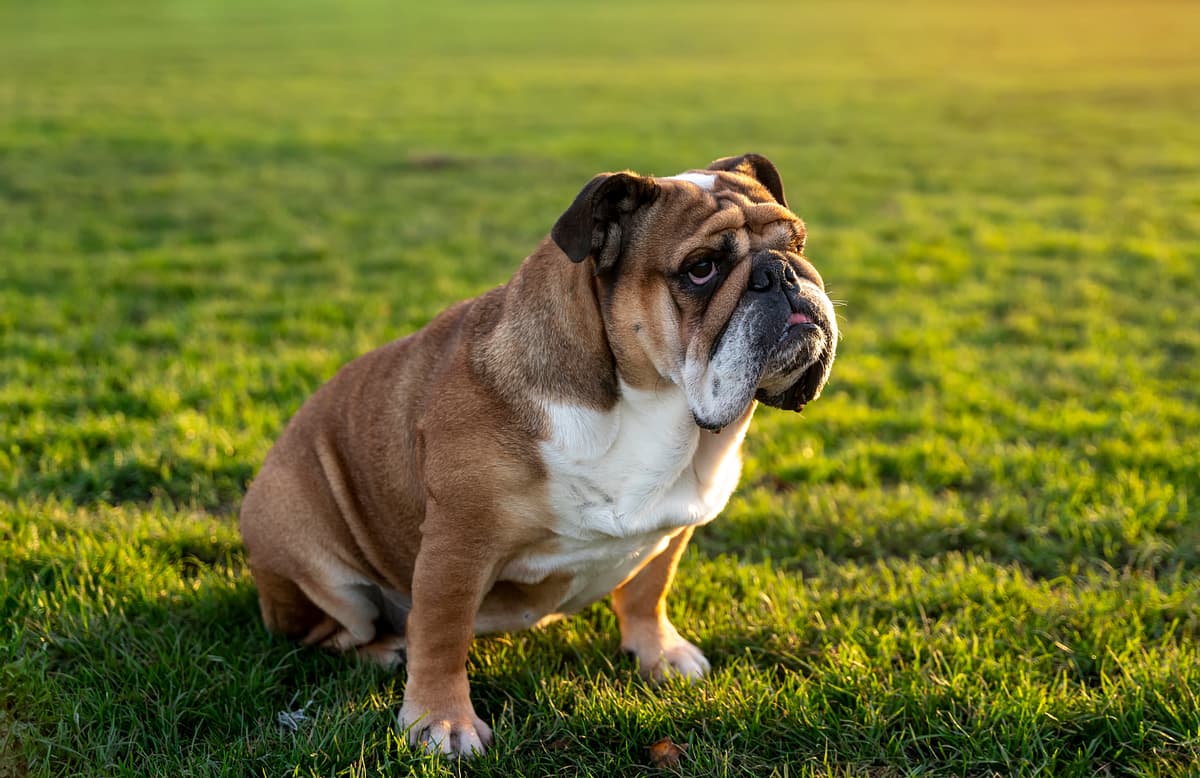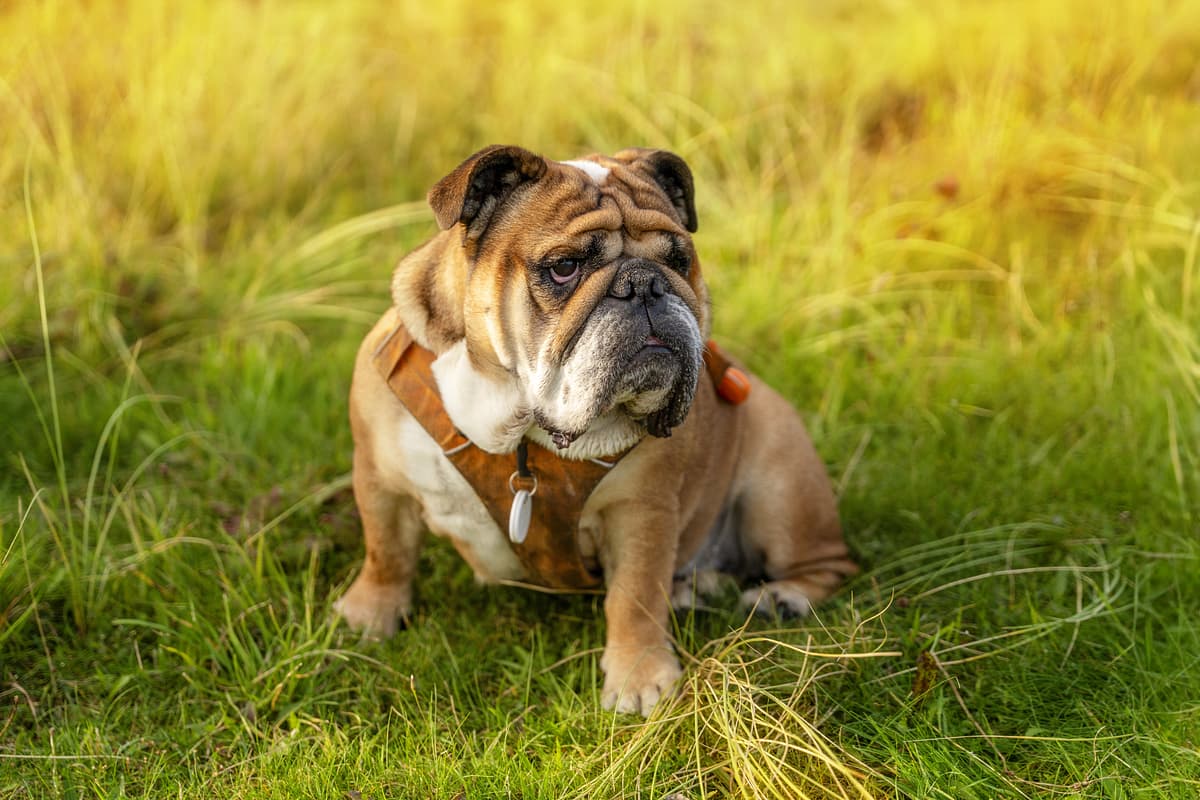Old English Bulldog vs English Bulldog
Discover the differences between Old English Bulldog and English Bulldog to make the best choice for your situation.
Try different breeds

Old English Bulldog
Strong, loyal, and affectionate, this breed thrives as a devoted companion with a calm yet protective nature. Distinctive looks and a gentle spirit make it a beloved family favorite.

English Bulldog
Stocky, courageous, and affectionate, this breed charms with its wrinkled face and calm nature. Loyal and gentle, it thrives as a loving family companion.
Quick comparison
Medium
23–36 kg
Short, smooth
8–10 years
20–30 kg
Moderately active
Medium
23–25 kg
Short, smooth
8–10 years
18–23 kg
Low activity needs
Personality & behavior
Compare the personality traits and behavioral characteristics of both breeds.
Old English Bulldog
Affectionate with family, generally sociable with others
Learns basic commands, may need repetition
Moderate exercise needs, enjoys daily walks
Enjoys games but not overly exuberant
Adjusts well to new environments and routines
English Bulldog
Affectionate and gentle with family and children
Learns basic commands with some patience
Prefers lounging over vigorous physical activity
Enjoys play but tires fairly quickly
Adjusts well to most living environments
Care needs
Exercise, grooming, and daily care requirements
Old English Bulldog
Hip dysplasia, respiratory issues
English Bulldog
Brachycephalic syndrome, skin fold infections
Suitability
How well each breed fits different living situations and families
Old English Bulldog
Fairly suitable
Generally easygoing but may need firm training for stubbornness
Good option
Moderate exercise needs and calm demeanor suit smaller spaces
Somewhat suitable
Enjoys play but lacks high stamina for rigorous activities
Very friendly
Patient and gentle with children when properly socialized
Possible conflicts
Can be territorial with other pets, early socialization is important
Not ideal
Dislikes being alone and may develop separation anxiety or destructive habits
English Bulldog
Good option
Easygoing, low-maintenance nature suits owners with limited dog experience
Excellent fit
Moderate exercise needs and calm demeanor work well in small living spaces
Not ideal
Low stamina and breathing issues make them unsuited for high-activity lifestyles
Very suitable
Gentle, patient, and tolerant with young children when properly socialized
Usually compatible
Generally sociable but may need guidance with other pets, especially dogs
Not recommended
They struggle with long periods alone and are prone to separation anxiety
Breed strengths
What each breed excels at and their best qualities
Old English Bulldog
- Loyal and devoted to family
- Confident and stable temperament
- Good with children when socialized
- Moderate exercise needs suit urban living
- Strong natural guarding instincts
English Bulldog
- Affectionate with family members
- Generally good with children
- Low exercise requirements
- Minimal grooming needs
- Adaptable to apartment living
Challenges & considerations
Potential challenges and considerations for each breed
Old English Bulldog
- Prone to joint and hip issues
- Can be stubborn during training
- Sensitive to extreme heat or cold
- Needs consistent early socialization
- May show dog aggression without guidance
English Bulldog
- Prone to respiratory problems
- High risk of overheating
- Susceptible to skin infections
- Can be stubborn during training
- Tends to drool frequently
Ready to choose your perfect breed?
Learn more about each breed or compare other breeds to find the perfect match for your lifestyle.
Discover more helpful tools
Make use of our other free tools to get the most out of your pet experience
